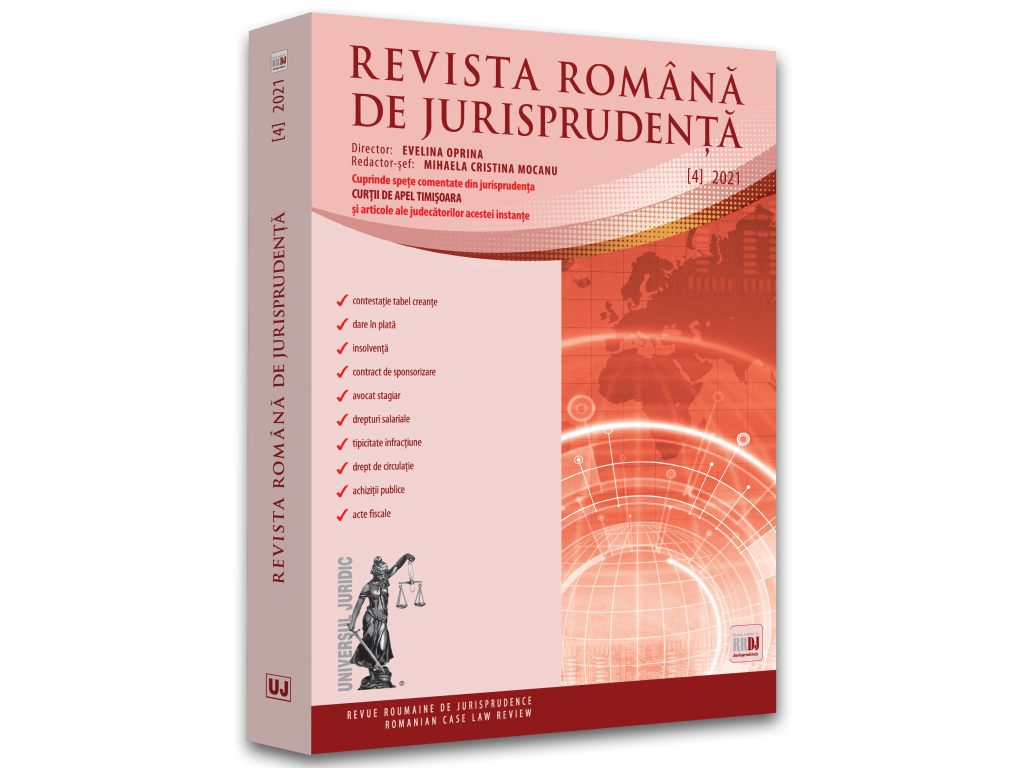Substantive and formal conditions concerning the conclusion of the sponsorship contract and the beneficiaries of the sponsorship, subject to the provisions of Law no. 32/1994. Analysis of the incidence of the hypothesis covered by the provisions of Articl
DREPTUL AFACERILOR/ASPECTE DE DREPT PROCESUAL
Abstract
According to Article 21 para. (4) letter p) of Law no. 571/2003 and Art. 25 para. (4) letter i) of Law 227/2015 on the Tax Code, as amended, economic agents may deduct from the corporate income tax the sponsorship expenses in compliance with the limits set by the law.
The sponsorship operation is governed by the provisions of Law no. 32/1994, with subsequent amendments and additions, so the deduction from corporate income tax of the amounts representing sponsorships must be made in accordance with the provisions of this law.
Being a legal act concluded between two persons (either an individual and a legal person, or two legal persons in this case), sponsorship must be carried out on the basis of a written contract which must contain certain specifications (number, date of preparation, object of the contract, amount of sponsorship, duration, etc.). The legal provisions concerning the obligation to conclude the contract in written form as well as the obligation to record the amount sponsored in the contract and its duration are found in Article 1 para. (2) of Law No 32/1994 on sponsorship. The fact that the amount granted by way of sponsorship was mentioned in the first addendum concluded between the parties, and not in the original contract, is not such as to render the sponsorship contract concluded between the parties null and void, since the intention of the parties that the deed they drew up should produce the desired legal effects is not in doubt. In addition, the documents in the case file show that the amount received by way of sponsorship was used for the purpose for which the contract was concluded. If the contract does not comply with the purpose intended by the law, it may be annulled for lack of cause or illegality. The cause and lawfulness are presumed, however, until proven otherwise, which means that anyone who has an interest in overturning this presumption must prove the violation or misappropriation of the social interest, i.e. the unlawfulness or immorality of the cause, which has not been proven in this case.
From the analysis of the provisions of Art. 6 letter c) of the Law no. 32/1994 on sponsorship, it follows that the non-granting of tax facilities related to sponsorship is subject to the condition that the legal person carrying out the sponsorship must manage or control the sponsored legal person and that the control must be exercised directly. In these circumstances, if the limited liability company is not a member of the association that benefited from the sponsorship, then the legal condition of direct management or control of the non-profit legal person that would benefit from a sponsorship is not fulfilled. In the present case, the plaintiff company does not manage or control the non-profit entity to which it has granted sponsorship. The fact that the sponsorship was made to a non-profit-making legal person governed by private law, of which the plaintiff's director is a founding member, does not mean that the legal condition set out above has been fulfilled.








